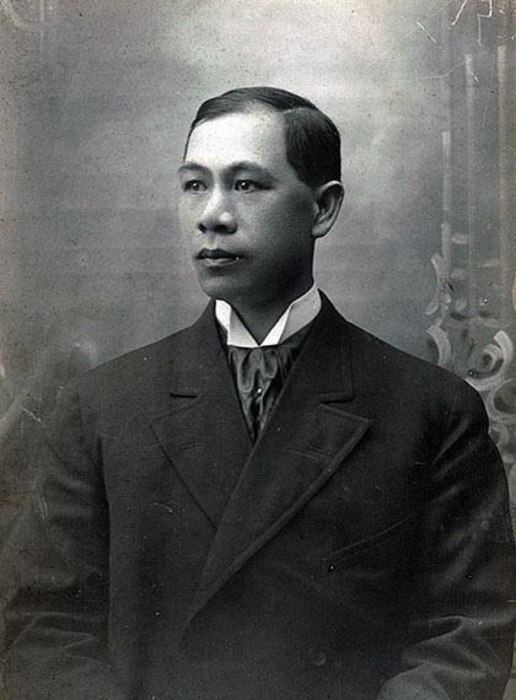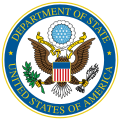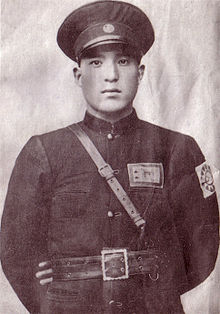
Chiang Ching-kuo (蔣經國)
b. 27 April 1910 (41 years old)
Director of the National Bureau of Investigation & Statistics, 1946
Director of the Counterintelligence Bureau, 1946 – 1948
Minister of the Interior, 1948 – present
Director of the Counterintelligence Bureau, 1946 – 1948
Minister of the Interior, 1948 – present
Biography:
Chiang Ching-kuo was born in Fenghua, Chekiang Province. In early childhood he seldom saw his father and was brought up by his grandmother and mother in a Buddhist atmosphere. He was given a strict traditional Chinese education until he was 12 years of age when he left for Shanghai and Beijing to attend westernized schools. Chiang was a student activist and was involved in a number of anti-Japanese and anti-government protest movements.
In 1925 Chiang was one of 340 students elected to attend the Sun Yat-sen University of Moscow. At that time, his father was already a leading figure in the Kuomintang (KMT) which formed the first united front with the Chinese Communist Party (CCP) against the warlords and foreign imperialist powers. His Moscow education was mostly the studies of revolutionary theories, Marxism-Leninism, and military science. He joined the Soviet Communist Youth League and later became a probationary member of the Soviet Communist Party.
During the course of the power struggle between Stalin and Trotsky, Chiang might have professed sympathy with the latter. He antagonized Wang Ming, then the CCP representative in Moscow. More importantly, due to his father's strong anti-Communist policy Chiang was sent to a Siberian mining factory in 1931 where he met and married his Russian wife in 1935. His classmates in the Sun Yat-sen University included Deng Xiaoping, Liao Cheng-chih, Ulanfu, and Lin Chu-han, all of whom later became prominent CCP leaders. Chiang lost his probationary party membership in 1936.
In 1937, after spending 12 years in the former Soviet Union, Chiang returned to China. Stalin decided to release him because the KMT under his father's leadership had just agreed to a second united front with the CCP in order to fight against the Japanese aggression. Upon return, Chiang spent one year in Fenghua with his mother (who was later killed by a Japanese bomb) under the guidance of Hsu Daolin, a brilliant scholarly official and aide to Chiang Kai-shek.
Chiang's political career began in 1938 when he was appointed to head the county government in Kanhsien, Kiangsi Province, and simultaneously assumed the post of administrative inspector to supervise nearby counties. He used iron-handed methods to put together a series of administrative, economic, and social reforms. He established a political institute to train administrative cadres. Chiang formally became a KMT member in 1938 and was baptized as a Christian in 1943. From 1941 to 1946 he devoted himself to the work of the youth league organization, which was conceived as an institutional arm of the KMT to recruit and train young cadres. Through these efforts he established himself as an important factor in the KMT power structure.
Early in 1946 he was appointed Director of the National Bureau of Investigation and Statistics (NBIS), or Juntong, which acted as the Republic of China's intelligence gathering force, as well as a proto-secret police. Although it would change to the Counterintelligence Bureau its functions which largely remain the same and with the outbreak of the Chinese Civil War, the younger Chiang's bureau proved instrumental, providing vital intelligence against the Communists.
His stalwart work lead to Chiang's further elevation to the post of Minister of the Interior in 1948, granting him large oversight over the nation's police forces, secret police elements, etc.; these too Chiang used with vigor in his efforts against the Communists, with great results: after extensive torture of General He Long the location of the CCP Politburo and Secretariat members was found, and in a daring raid orchestrated by the secret police all of them were apprehended and quickly disposed of, largely bringing the war to an end.
Now Chiang looks to the future, dedicated to helping the Republic of China prosper, and to protect the rule of his father, Chiang Kai-shek: the Liberator of China.








